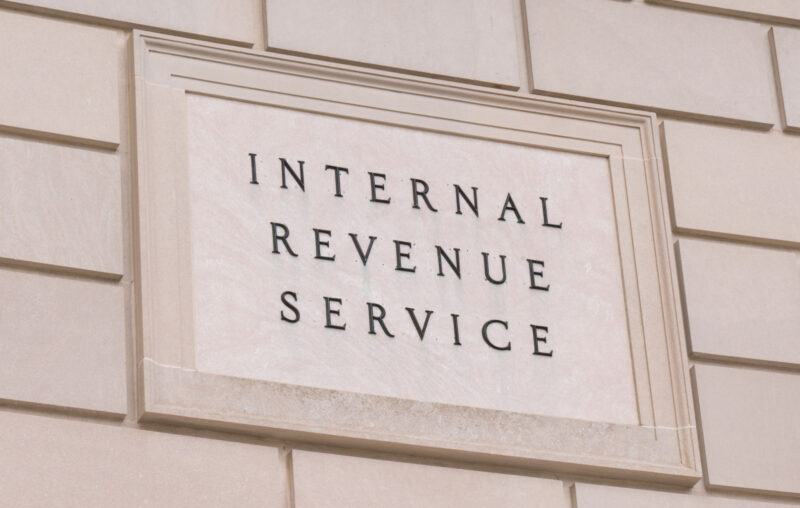Public Choice Sheds Light on the Bipartisan Tax Deal

At the end of January, the House of Representatives passed the Tax Relief for American Families and Workers Act of 2024 with bipartisan support and it is now onto the Senate. Despite the bill’s name, it does not help the average American. Instead, it creates carve outs for specific interest groups and further complicates the tax code. A better tax bill would have simplified the tax code and lowered income taxes to help Americans keep more of what they earn.
Of course, we do not live in the ideal world. This bipartisan tax bill (as most other bills) is the result of logrolling, the practice of trading votes. For better or worse, logrolling is a part of the democratic process and understanding how it works can shed light on why certain political outcomes occur.
Logrolling for Desired Outcomes
The bipartisan tax bill created, restored, and increased numerous deductions for both personal and corporate income taxes. Deductions sound nice, but deductions further complicate the tax code while concentrating benefits for specific groups of Americans and dispersing costs.
Among several other deductions, this tax bill restored two major business deductions (pushed by the right side of the aisle) and increased the child tax credit (pushed by the left side of the aisle, but also favored by certain Republican members) through 2025. The bill also provides a laundry list of new deductions, such as business deductions based on EBITDA (earnings before interest, taxes, depreciation, and amortization) as well as increased the low-income housing tax credit (LIHTC). There was even a promise made to New York Republicans to discuss removing the cap on the State and Local Tax (SALT) deduction. Members of Congress on both sides of the aisle got desired deductions in the bill, but no one got everything he or she wanted.
This is a textbook example of logrolling. Elected officials on either side of the aisle are willing to offer concessions to the other side in exchange for a desired policy in return. The legislative process runs on compromise. A member of congress would rather get part of what he or she wants than get nothing and face potential backlash from voters at the polls. Logrolling, however, can result in voter confusion. If voters notice their representative engaging in logrolling often enough, the elected official may come off as unprincipled. Unfortunately, the more government increases its scope of authority, the more logrolling will occur, resulting in greater voter confusion.
The logic of collective action can also explain why elected officials have an incentive to cater to the smaller interest groups that benefit from expanded deductions instead of lowering tax rates for all Americans. According to the logic of collective action, small homogenous groups with strong communities of interest have greater stakes in favorable policy decisions, can organize at lower costs, and can more successfully control free riding when it comes to taxes and spending than the population at large. Elected officials will cater to these smaller groups’ demands with the hopes that doing so will aid their reelection.
A “Tax Relief” Bill That is Not Relieving
Outside of the halls of Congress, ordinary Americans are no better off than they were before. These deductions concentrate benefits to those eligible to claim those deductions and disperse the costs to everyone else. Even if a family or business owner is eligible for the new deductions, there is still the risk of being audited. The IRS promises to ramp up enforcement this tax season, with thousands of new IRS agents and using AI to check compliance. If these deductions take effect, the IRS will be making compliance checks on those who claim them.
These deductions further complicate the tax code and increase uncertainty because these deductions are set to expire at the end of 2025. The complexity of the tax code is already dizzying to Americans. A recent survey found that 35 percent of Americans are worried about filing their taxes incorrectly, 37 percent are struggling to understand what deductions to take, and 29 percent are afraid of being audited. It is not just the average American that feels this way. Former Secretary of Defense Donald Rumsfeld wrote to the IRS in 2014, stating:
The tax code is so complex and the forms so complicated, that I know that I cannot have any confidence that I know what is being requested and therefore I cannot and do not know, and I suspect a great many Americans cannot know, whether or not their tax returns are accurate.
Adding and temporarily changing deductions will bring greater stress, not relief.
Can We Get Genuine Tax Relief?
If Congress really wanted to give taxpayers relief, it could have let Americans keep more of the money they earn. Instead of having Americans jumping through hurdles to claim deductions with the hope of getting some of their money back, it would be better for the government to not take the money in the first place.
Ideally, Congress would vote to simplify the tax code. Instead of seven tax brackets and a myriad of deductions, switch to a flat income tax. This will reduce the anxiety Americans feel every year when filing their taxes. Instead, they will pay a flat rate and be able to file their taxes on a postcard. It would also be ideal for the federal government to keep the rate low. Research also shows income taxes are the most harmful tax for economic growth, so getting personal and corporate income taxes as close to zero as possible would help Americans.
Easier said than done. If the income taxes were repealed, Congress would need to dramatically cut spending to avoid a fiscal crisis, as well as avoid the allures of debt-financed spending and spending through money creation.
The best way to limit the frustrations of logrolling is to limit the scope of government. While it is no small task, the first step to a freer society is understanding how the mechanisms of government work and why policy outcomes occur.










